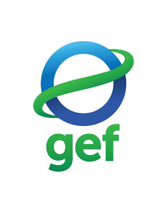Title
Incorporating Lessons
During the technical design phase, it is encouraged that the planning team incorporates the latest information available into the project design. The WWF GEF Agency encourages the Project Development Team to seek out technical experts (inviting when appropriate to the workshop), research articles and studies, as well as reports (e.g. mid-term or terminal evaluation reports from other projects) that relate to the scope of the project or more specifically the environmental problem the project wishes to address. The WWF GEF Agency encourages planning teams to compile lessons learned, recommendations and/or best practices where possible. This will improve the logic of the project strategies, hopefully reduce assumptions and ensure that the activities are informed with the best information available.
Following the technical design workshop, new information may come to light such that the project strategies may continue to be refined or revisited. Planning should be iterative and incorporate new information as it is learned to improve the effectiveness of the project. As you make changes, you should also document the rationale behind them so that others will understand what you learned and why you made these changes
For CEO Endorsement Request Document submission, planning teams are encouraged to submit a brief 1-2-page document summarizing major lessons from their research and explaining how the information they have gathered has or will be incorporated to improve project design and execution. This can be annexed to the body of the CEO Endorsement Request Document.
Where to access information
Reports and publications are increasingly public documents that can be accessed online via a search engine. For terminal evaluation and midterm reports, the UNDP and WB often make these reports available on the Web. The UN evaluation reports can be found at the following website, where you may search by country, key term (such as GEF) or date: http://www.unevaluation.org/evaluation/reports. The World Bank Evaluation page also maintains a database of publicly available evaluation reports, as well as country specific reviews, project implementation completion reports (ICRs) and more at this website: https://ieg.worldbankgroup.org/evaluations.
Certain scientific articles and white papers will be publicly and freely available via a simple search engine. If the team seeks access to research articles, but your organization does not have a subscription to academic databases, it is possible you can access these articles at the local library. Science Direct or Elsevier provides access to many scientific journal articles at a cost. (https://www.sciencedirect.com/) Otherwise, a simple online search could provide abstracts as well as author/contact information and it is possible to request a copy of the article from the author directly.
The Conservation Measures Partnership, a joint collaboration of major environmental NGOs that adhere to the same planning methodology as WWF, offers a database of conservation projects, including conceptual models, results chains and other documents available for review. You can access the database and sign up for free at https://www.miradishare.org/.
Finally, the best resources may come from local institutions, NGOs, and government partners. Do not hesitate to reach out to these stakeholders to gather information for your project.

